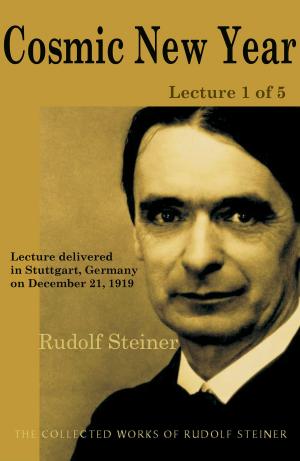The Child's Changing Consciousness: Lecture 3 of 8
Nonfiction, Reference & Language, Education & Teaching, Educational Theory, Philosophy & Social Aspects| Author: | Rudolf Steiner | ISBN: | 9780880107785 |
| Publisher: | Steinerbooks | Publication: | September 15, 1996 |
| Imprint: | SteinerBooks, Collected Works 306 | Language: | English |
| Author: | Rudolf Steiner |
| ISBN: | 9780880107785 |
| Publisher: | Steinerbooks |
| Publication: | September 15, 1996 |
| Imprint: | SteinerBooks, Collected Works 306 |
| Language: | English |
This lecture is part of the collection "The Child's Changing Consciousness" by Rudolf Steiner. Steiner (1861-1925) was an Austrian philosopher, social reformer, architect, and esotericist. He gained initial recognition as a literary critic and cultural philosopher. At the beginning of the 20th century, he founded a spiritual movement, Anthroposophy. He is considered the father of Waldorf education, biodynamic agriculture, anthroposophical medicine and spiritual science. Imitation as a natural law. Religious devotion toward the surrounding world. The widening of the horizon through the childs walking, speaking and first thinking. Approaching the artistic element through the medium of language. The child needs a pictorial, and not a logical approach. During the second life period acceptance of authority becomes a natural law. With the change of teeth memory begins to develop out of the childs ensouled life of habit. The interweaving of breathing and blood-circulation within the rhythmic system during the ninth and tenth years, and, through it, the childs taking hold of the musical forces. Puberty. The nature of the rhythmic system. The entire Collected Works of Rudolf Steiner are available from SteinerBooks.
This lecture is part of the collection "The Child's Changing Consciousness" by Rudolf Steiner. Steiner (1861-1925) was an Austrian philosopher, social reformer, architect, and esotericist. He gained initial recognition as a literary critic and cultural philosopher. At the beginning of the 20th century, he founded a spiritual movement, Anthroposophy. He is considered the father of Waldorf education, biodynamic agriculture, anthroposophical medicine and spiritual science. Imitation as a natural law. Religious devotion toward the surrounding world. The widening of the horizon through the childs walking, speaking and first thinking. Approaching the artistic element through the medium of language. The child needs a pictorial, and not a logical approach. During the second life period acceptance of authority becomes a natural law. With the change of teeth memory begins to develop out of the childs ensouled life of habit. The interweaving of breathing and blood-circulation within the rhythmic system during the ninth and tenth years, and, through it, the childs taking hold of the musical forces. Puberty. The nature of the rhythmic system. The entire Collected Works of Rudolf Steiner are available from SteinerBooks.















